Comming to Denmark


The Country
Opposite you will find a map of Denmark which in Danish is called DANMARK. The country consists of a peninsula called JYLLAND and many islands of varying size. In fact there are 483 islands but only 100 of them are inhabited. We have marked the place where you are going to stay. Denmark is of a size which will enable you to see most of the country during your stay.
The capital is situated on the east coast of the island of SJÆLLAND. It is called Copenhagen in English, Copenhague in French – KØBENHAVN in Danish. It is a city of about a million inhabitants, an exciting place with attractions such as the Tivoli Pleasure Gardens and many large department stores and shops. There are excellent shopping facilities in all Danish towns and some of the largest cities are AARHUS and AALBORG in Jylland, and ODENSE on the island of FYN. These and other towns are clearly marked on the map.
Denmark has neither mountains nor large open spaces. It is a fertile farming land with small towns spread across the whole country. As for industry, there are a few large factories and many small ones, often found in pleasant surroundings without noise or huge smoke stacks. You will quickly observe that Denmark is a very clean country.
Denmark is surrounded by the sea. No matter where you are in Denmark you can quickly get to the seaside. There are miles and miles of beautiful beaches suitable for bathing. Bridges and ferries connect the numerous islands.
Statistical informations: https://www.dst.dk/en#
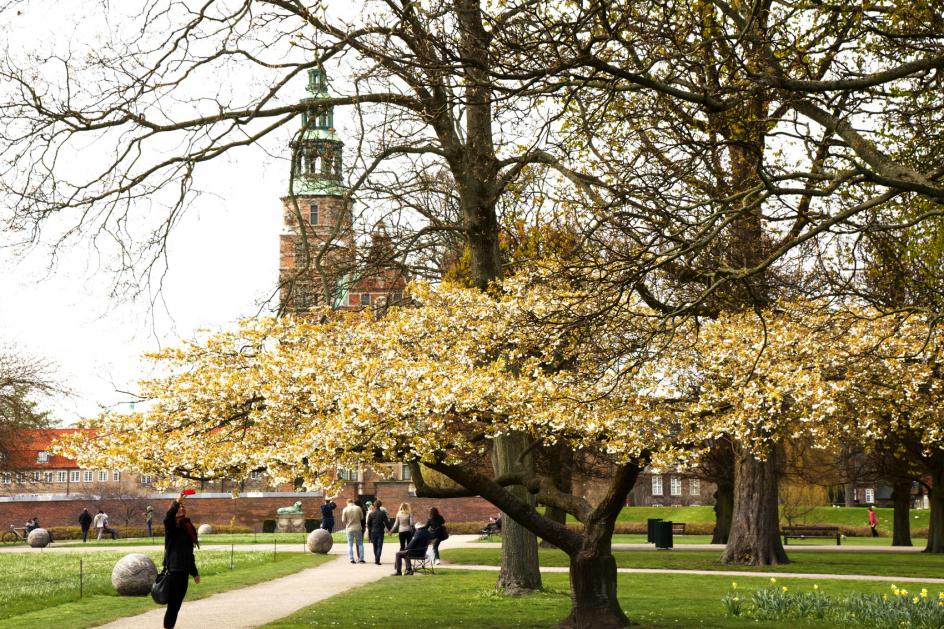

The People
Archaeologists have found positive proof that people lived in Denmark around 5000 B.C. The proof includes refuse deposits from their kitchens. These people lived by hunting and fishing, but in fact the first recorded history of Denmark began around 1000 A.D. when the Danish Vikings went on expeditions in their small vessels to most of Europe. At this time Christianity came to Denmark, and it is also the time of our first recorded King. He was called King Gorm. You can still see his burial mound in Jelling, alongside which his son erected a runic stone in his memory with an inscription about Denmark’s first moves towards Christianity.
Since then Denmark has had an unbroken monarchy, making this oldest kingdom in the world. The kingdom was inherited through the family and in recent times a law was passed enabling women to inherit the throne. H. K. H. Queen Margrethe II has been Queen until 14. January 2025 where H.M. King Frederik 10 th took over. The King or Queen, signs the laws of the country.
In recent times the functions of the sovereign have become more ceremonial. Denmark is a democracy with a parliament elected by popular vote. The parliament is called ” Folketinget ” and has only one chamber. The Cabinet is made up of about 20 ministers. We have many political parties but only a few are significantly large. The Labour party (Socialdemokraterne) has approximately one third of the vote, and the non-socialist parties (Conservatives and Liberals) share another third. A number of smaller parties support either the Social Democrats or the non-socialist parties. These parties share the last third of the vote. The extreme socialists share only a few percent of votes.
Denmark is a member of the European Union and NATO. The principal industries are farming, fishing, processing agricultural products and industry (ships, machines, textiles and electronics). Like many other countries, Denmark has no high unemployment problem or national debt but the tax burden tends to be heavy. However, compared to some other countries, Denmark is well-off and we enjoy a high standard of living.
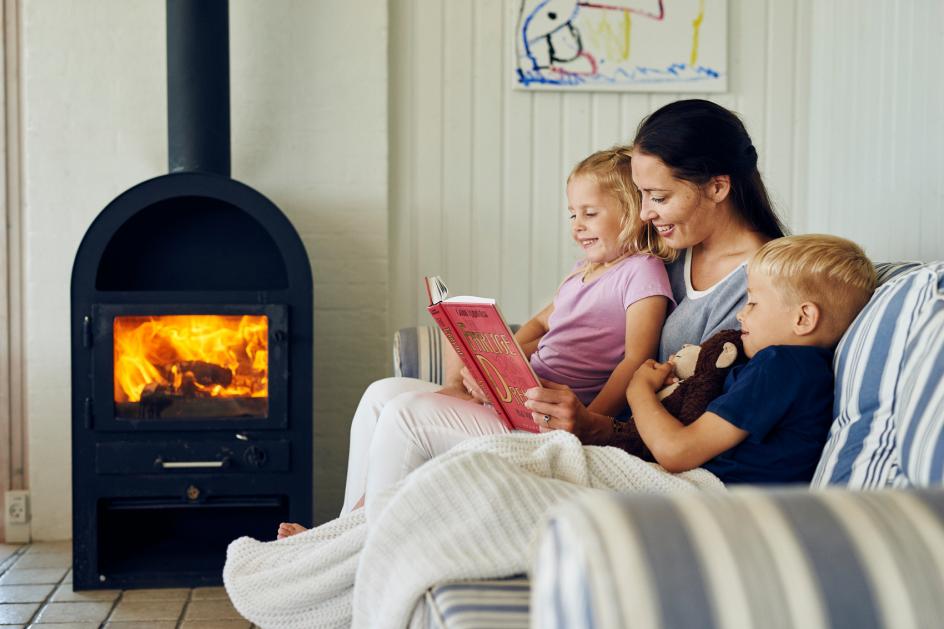
The Home
Danish social life revolves around the home and family. Danes like to stay home and entertain at home. They invest a major part of their income in their homes which can be seen in the high standard of their buildings, décor and furniture. All Danish homes are extremely well insulated and heated – you will not be cold indoors during the winter. However, heating, hot water and electricity are expensive and students coming from countries where energy is cheap often forget this. Many homes have wooden floors and visitors are expected to take their shoes off when coming in.
Mealtimes are communal, and should be respected. When called to the table to eat with the family, ensure you are there promptly. A tradition – and one which any Danish hostess will love you for – is to thank the hostess for your meal by saying ‘tak for mad’.
Danish children are given a lot of freedom and responsibility, which will also be extended to you.
The School
You will be going to school in Denmark. This is a good thing because you will meet many people of your own age quickly. Danish schools are used to foreign students, so neither teachers nor students will look upon you as if you were a mysterious creature from another planet.
You will fit into your class easily and be accepted in no time, but we recommend learning Danish as quickly as possible, to avoid missing out on some of the lessons and to make friends quickly. On the other hand, you should do extremely well when English is on the timetable! There is a distinctly easy relationship between teachers and students and Danish schools are much less strict than schools in many other countries.
There is much less formal discipline, more self-discipline. But please do not miss school without permission. The relaxed atmosphere does not mean that you should not be present and work – only that schools expect students to take responsibility for themselves. Teaching in practical subjects such as woodwork and home economics is somewhat limited. However, this is made up for by the availability of foreign language subjects – English, German, French etc.

The Church
If you want to go to church on Sundays, you are welcome to do so, but attending is optional. It’s as simple as that. The established church of Denmark is Lutheran Protestant.
In the larger cities there are Roman Catholic churches. However there is only one Jewish Synagogue in Denmark, and that’s in Copenhagen.
Most Danish churches are hundreds of years old. Try to visit a couple, as they are a part of the Danish culture and many are very beautiful, and make distinctive landmarks. It is inconceivable that you will be forced to attend church or be criticised if you do not. 99 per cent of Danes will respect your wishes, whatever they are.

The Food
Every country has its own specialities. Perhaps Danish food is totally different from what you are used to, but food may just be one of the most exciting experiences you can have in a foreign country.
Most foreigners love Danish food and our Rotary exchange students have often gained some weight before their return home! They think we eat well, substantially and generously. It shouldn’t take long to appreciate the dark rye bread which is eaten with different kinds of meat; cheese etc. and you will enjoy the hot evening meals. These often consist of meat, white potatoes and sauce. Fish is enjoyed by nearly all Danish families.
The way of eating can also be different. The wisest thing for you to do is to watch how other people do it – and then do it in the same way. After all, you have come to Denmark to live like a Dane. As the saying goes: When in Rome, do as the Romans do! We have had few Rotary exchange students who would only eat hot-dogs and refused to leave their rooms to join the family at the dining table. These are the type of exchange students who should not have left home as they were not mature enough to be visitors to another country.
You can look forward to Danish food. It is delicious, well prepared and wholesome. It is not too spicy, but is solid and rich with a high calorific value. At many places you will undoubtedly be offered beer, a glass of wine or even stronger drinks. You can always decline and ask for something else.
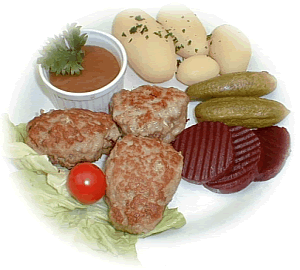
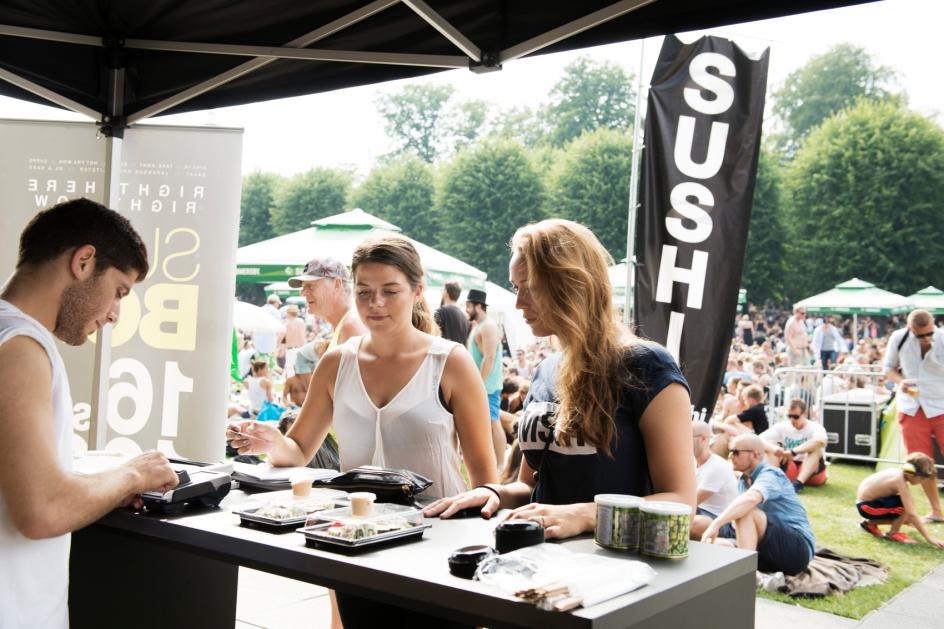
The Danish “Frikadelle” (rissole) is a national dish served with potatoes, preserved sour vegetables and thick brown sauce.
The first recipes of this delicious dish is dated back to 1837, but the name “Frikadelle” (pure pork) is already recorded in the beginning of the 16th century.
In a cookbook from 1648 a similar “Frikadelle” dish is mentioned.
The Danes love their “Frikadelle” and eat the meal all year round as a main traditional dish.
Frikadelle is the Danes favourite dish of them all.
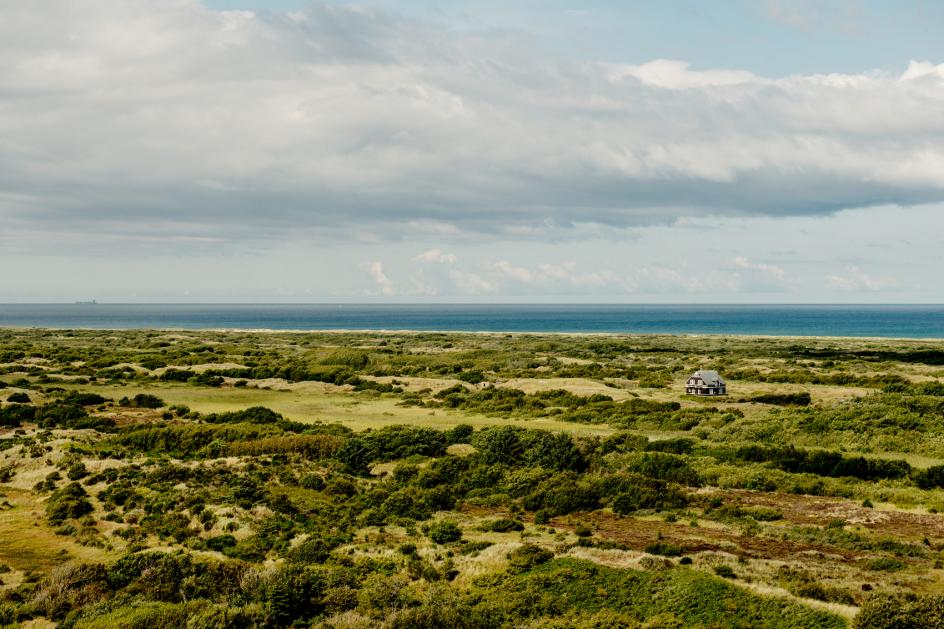
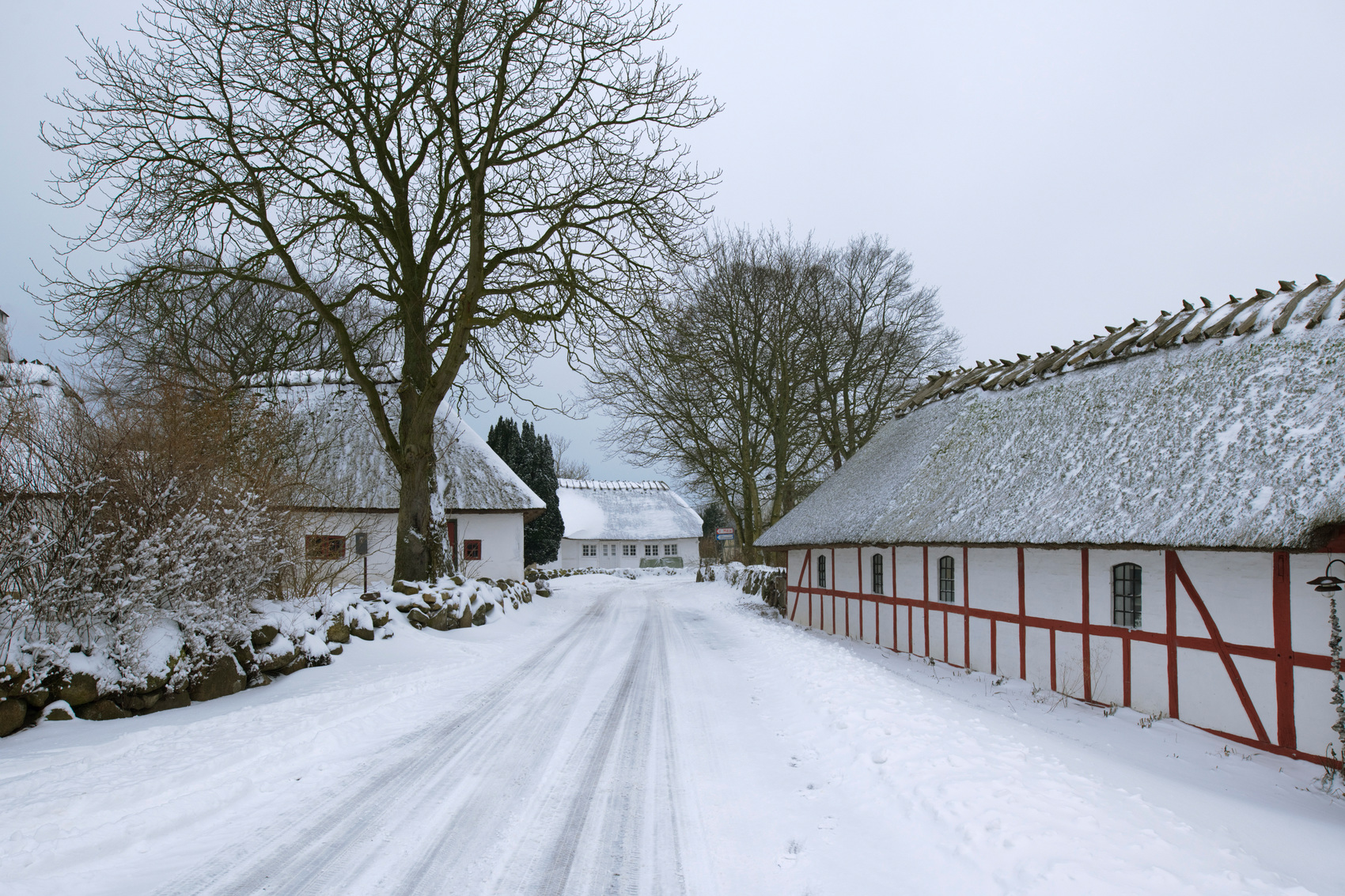
The Weather
Denmark is so small that the climate is usually the same everywhere.
In winter we can have snow and freezing temperatures, but sometimes we have mild winters with only a few snow storms.
During the summer months there are periods when it is warm enough to wear light clothing, but don’t expect tropical heat! The normal summer temperature during the day is between 20 and 24 C (68-76 F.).
We talk a lot about the weather in Denmark because it changes from day to day. It can be windy and stormy at all times of the year, and we get a lot of rain. But the sun always comes through in the end and there are often periods of calm weather with clear blue skies. In fact we enjoy our ever-changing weather! Providing you have the correct clothing it can be just as pleasant taking a brisk stroll on a windy autumn day as it is to lie on the beach on a beautiful summer day. We generally say that there is no such thing as bad weather – just wrong clothing!
Away from Home
You will really enjoy your stay in Denmark – no doubt about that. It will probably be one of the highlights of your life. Should you feel homesick for a while – which is only natural – then seek comfort with your Danish family or your Rotary Club Counsellor. Talk openly about your problems – no matter what they might be. You are a welcome part of us. We will understand you – problems are more or less the same all over the world.
In case you need someone’s shoulder to cry on you will find that too. But most of the time you will be happy and the whole time you will see and experience new, exciting things. If you write home frequently – do not forget to write to your home Rotary Club – you will receive many letters in return.
Even if communication is easy and inexpensive, try to limit your contact to your home family as it may affect your exchange experience

